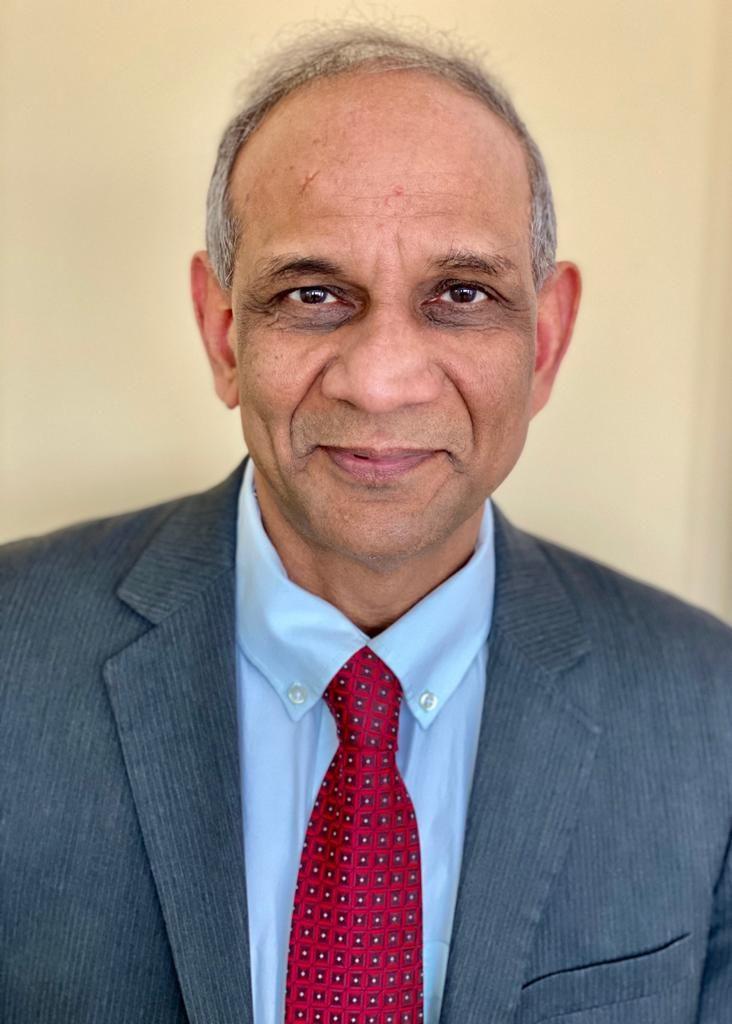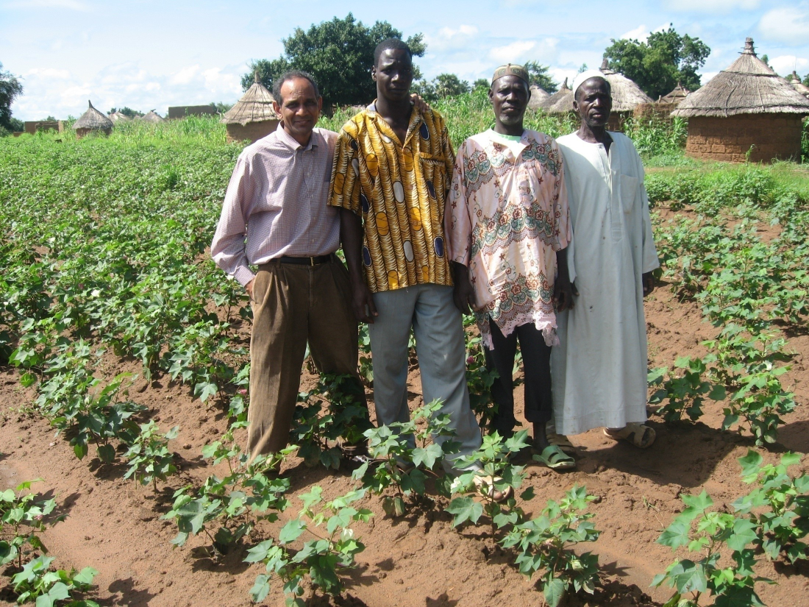Maredia named Fellow of African Academy of Sciences
MSU director of International Agricultural Programs recognized for 30 years of contributions to agricultural capacity building and education

EAST LANSING, Mich. – Dr. Karim Maredia, professor, assistant dean and director of International Programs for the College of Agriculture and Natural Resources (CANR) at Michigan State University, was recently named a Fellow of the African Academy of Sciences (AAS) for his contributions to research, outreach, education and capacity building.

AAS Fellows are elected through a rigorous and merit-based process to show they have demonstrated excellence in their respective fields, significantly contributing to the advancement of science, technology and scholarship in Africa and globally, said Professor Lise Korsten, AAS President.
“We are delighted to welcome these exceptional scientists and scholars into our Fellowship. Their expertise and leadership in their respective fields are invaluable assets in advancing Africa’s scientific agenda. As an Academy, we remain committed to harnessing the power of science, technology, and innovation to drive sustainable development in Africa,” Korsten said.
Maredia, who also serves as the director of the MSU World Technology Access Program (WorldTAP), has worked for more than 30 years building global knowledge networks to enhance capacity building and technology transfer in partner nations, including numerous international development projects funded by the USAID, USDA, UN-FAO, the World Bank, Rockefeller Foundation, Winrock International, and Gates Foundation.
Prior to joining MSU in 1989, Maredia worked with the International Maize and Wheat Improvement Center (CIMMYT) in Mexico. As a research scientist in the Maize Program at CIMMYT, he conducted research identifying germplasm resistant to Maize stem borers and other stored grain insect pests that affect crop and grain losses.
During his time at MSU, he has enhanced and expanded the impact of MSU research and developed global networks to facilitate information sharing, empower scholars from developing countries, and promote excellence in education globally.
Maredia designed and offered international training courses in agricultural biotechnology, biosafety, food safety, intellectual property management and technology transfer. These programs continue today and have trained more than 12,500 academic and non-academic professionals from Africa, Asia, Latin America and other regions around the world.
AAS Fellows are recognized for their outstanding contributions to the advancement of science and their role in shaping policies that drive sustainable development across the continent.
Since 2017, Maredia has served as a member of the African Union (AU) High-Level Panel on Emerging Technologies (APET). In 2023, he was named a Fellow of the National Academy of Agricultural Sciences in India, among many other international recognitions.

Dr. Berhanu M. Abegaz, Emeritus Professor at Addis Ababa University in Ethiopia and member of APET, has worked alongside Maredia to assess emerging technologies and evaluate which have a positive impact in accelerating the development of the African continent. Abegaz formally served as Executive Director of the AAS.
“I met Professor Maredia over ten years ago, and I was very impressed by the genuine interest he shows in scientific issues that are relevant to Africa,” Abegaz said. “I wholeheartedly seconded his nomination into the Fellowship of AAS. Professor Maredia is an outstanding scientist. In particular, he provides our organization a global outlook. We are sometimes too focused on African perspectives, and it is in this regard that Professor Maredia’s global views balance the way we frame our views for external consumption. We have hugely benefited from his depth of understanding of international issues.”
Maredia has traveled to more than 60 countries and disseminated knowledge and new technologies to the global agricultural development community. His extensive and diverse portfolio of research and outreach made him a valuable international scholar for the AAS, Abegaz said.
“AAS Fellowship is primarily for African scientists, but because Professor Maredia has a unique persona and great interest in developing countries, we value his association and input to our organization,” Abegaz said.
Fellowship in AAS rewards a career of achievement and earns Fellows membership of the General Assembly, the highest and ultimate decision-making governance organization of the AAS, to help guide policy formulation and engage with governments and policymakers towards the promotion of science, technology, and innovation on the continent and globally.
“It’s a great honor to be named a Fellow and to receive the recognition for more than three decades of work and relationships. It is also a great opportunity to develop and expand successful projects in partner countries to benefit other regions of the continent and other parts of the world,” Maredia said. “I think one area that AAS would like me to play a role in is helping connect the African Academy of Sciences to other academies internationally and build connections to faculty and research scholars that can impact areas across the continent.”
The AAS is a non-political, not-for-profit pan African organization whose vision is to see transformed lives through science, and mandate to recognize excellence through its highly prestigious fellowship and awards, providing advisory and think tank functions for shaping Africa’s Science, Technology and Innovation (STI) strategies and policies and implementing key STI programs aimed at addressing Africa’s developmental challenges.



 Print
Print Email
Email




